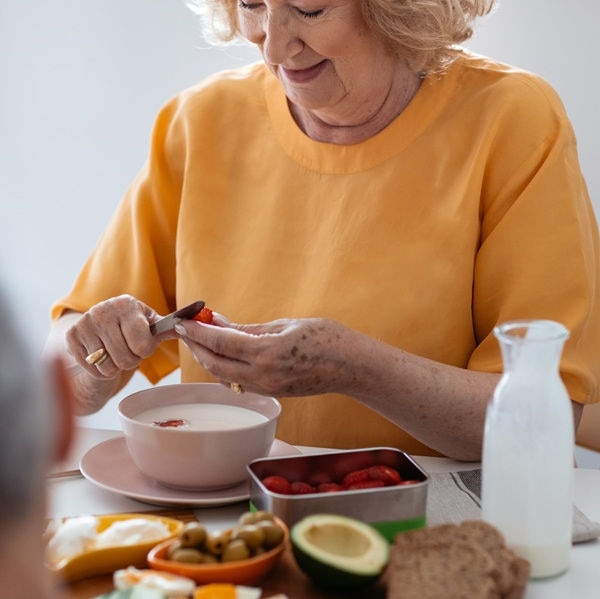
3 December 2025
News
September 30, 2025
Explore how taste modulation in nutritional solutions for cancer care can overcome sensory challenges, elevate patient experience, and transform outcomes.
According to the World Health Organization (WHO), around 1 in 5 people develop cancer in their lifetime.1 And that figure could be as high as 1 in 2 in some places, like the UK.2 Therefore, elevating the treatment and care of people living with cancer is an ever-present priority for science and society.
Nutrition is an integral and modifiable factor in cancer care—replacing crucial calories and nutrients commandeered by cancer cells to fuel their growth and providing people with the energy and strength needed both to fight the disease itself and to tolerate treatments. But adhering to nutritional care plans during cancer therapy can be a challenge for patients due to common side effects experienced as a result of the disease or its treatments. A prime barrier is taste and smell alterations (TSAs), which affect up to 86% of people living with cancer.3 TSAs can have huge detrimental effects on adherence to nutritional care, which in turn impacts treatment effectiveness, quality of life, and health outcomes.
We sat down with dsm-firmenich experts, Alessia Delbrück, Global Senior Innovation Manager Medical Nutrition, and Lyzandra Passarella-Dutour, Director Global Technical Taste, to explore the impact of TSAs on people living with cancer, and how forward-thinking flavors and taste modulation strategies in medical nutrition for cancer care has the potential to transform the patient experience and product efficacy. Want to keep reading? Fill in the form below to access the full interview.
1. World Health Organization. "Global Cancer Burden Growing, Amidst Mounting Need for Services." 2024. https://www.who.int/news/item/01-02-2024-global-cancer-burden-growing--amidst-mounting-need-for-services
2. Cancer Research UK. “Cancer risk statistics” https://www.cancerresearchuk.org/health-professional/cancer-statistics/risk
3. Rosati, D., et al. "Taste and smell alterations (TSAs) in cancer patients." Diseases 12, no. 6 (2024): 130.
Our world-renowned taste and sensory experts can help you develop impactful strategies to elevate your next innovation.

3 December 2025

3 October 2025

13 August 2025
Customized blends of functional ingredients in one single, efficient premix.
Streamline your product development process and get to market faster.
From trade shows to conferences and other industry events, find out where you can meet us next.
Talking Nutrition, Health & Care
Explore new science, consumer insights, industry news and more in our latest articles.
Discover educational whitepapers, webinars, publications and technical information.
Request samples, place orders and view product documentation.